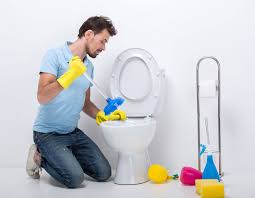Blocked drains are a common household issue that can lead to unpleasant odors, slow water drainage, and even potential damage to your plumbing system. Understanding the causes, prevention methods, and solutions for blocked drains can help you tackle the problem effectively. In this article, we’ll explore everything you need to know about blocked drains and how to keep your plumbing system running smoothly.One of the most frustrating problems homeowners face is a blocked drain. Whether it’s in the kitchen, bathroom, or outside, a blocked drain can disrupt daily life and cause significant inconvenience. Let’s dive into the common causes of blocked drains and how you can prevent them.
- Food Waste: One of the primary culprits of kitchen sink blockages is food waste. Grease, oil, and food particles can accumulate over time, leading to stubborn clogs.
- Hair: In bathrooms, hair is a major cause of blocked drains. When combined with soap scum, it can create a dense clog that’s hard to remove.
- Soap Residue: Traditional soap bars can leave behind a sticky residue that builds up in pipes, eventually leading to blockages.
- Foreign Objects: Items like sanitary products, wet wipes, and small toys can accidentally find their way into drains, causing immediate blockages.
- Tree Roots: Outdoor drains are often blocked by tree roots that grow into pipes, seeking moisture and nutrients.
Preventing blocked drains is easier than dealing with the aftermath. Here are some practical tips to keep your drains clear:
- Avoid pouring grease or oil down the kitchen sink. Instead, let it cool and dispose of it in the trash.
- Use drain covers to catch hair and food particles before they enter the pipes.
- Flush drains with hot water weekly to dissolve any buildup.
- Avoid flushing anything other than toilet paper down the toilet.
- Regularly inspect outdoor drains for signs of tree root intrusion.
If you’re already dealing with a blocked drain, don’t panic. There are several solutions you can try before calling a professional:
- Boiling Water: Pouring boiling water down the drain can help dissolve minor clogs caused by grease or soap.
- Baking Soda and Vinegar: This natural combination creates a fizzing reaction that can break down blockages. Pour half a cup of baking soda followed by half a cup of vinegar, wait 15 minutes, then flush with hot water.
- Plunger: A plunger can be effective for dislodging clogs in sinks and toilets.
- Drain Snake: For more stubborn clogs, a drain snake can reach deeper into the pipes to remove the blockage.
- Chemical Drain Cleaners: Use these as a last resort, as they can damage pipes over time.
While DIY methods can be effective for minor blockages, some situations require professional intervention. If you’ve tried multiple methods without success, or if you notice recurring blockages, it’s time to call a plumber. Professionals have the tools and expertise to diagnose and resolve complex drainage issues.Blocked drains are more than just an inconvenience; they can lead to costly repairs if left untreated. By understanding the causes and taking preventive measures, you can minimize the risk of blockages. And when problems do arise, knowing the right solutions can save you time and money. Keep these tips in mind to maintain a healthy plumbing system and avoid the hassle of blocked drains.

